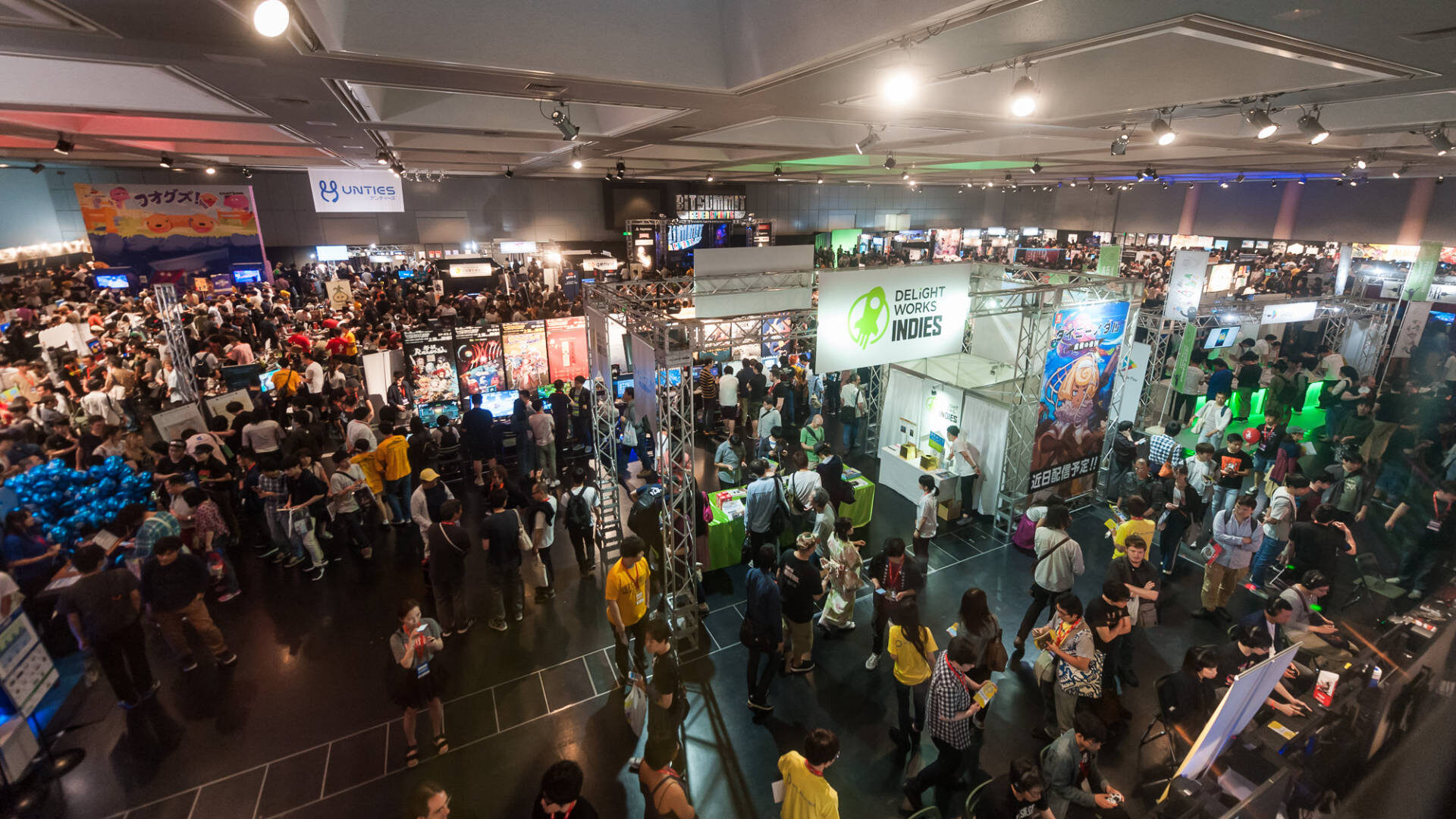James Mielke – BitSummit
The following interview was conducted for including for the feature story Small in Japan. This is the uncut interview in its entirety.
Mollie: Now that the very first BitSummit is over, how do you feel it went? What are your feelings of the show now that it’s a reality, versus the pre-show ambitions for it?
James Mielke: The reality of the show was actually better than we imagined in the planning stages. Before the show, it was difficult to visualize how everything was going to look, how crowded the place would feel, whether the developers would mingle and interact with each other (Japanese developers are notoriously secretive), and whether the attendees would walk away satisfied. Even though I work for Q-Games in Kyoto, and in the past Q Entertainment, there was still a lot of trepidation from some developers (they’d ask a LOT of questions), partly and probably because I’m a foreigner, and partly because groups have unsuccessfully attempted things like this in the past.
But BitSummit was very successful. We didn’t make any money from it, but that was the plan anyway, as we put every yen we had into the event. Result: the turnout was huge, the coverage was substantial, and the feedback we received from everyone was phenomenal. The sponsors, developers, and media all wanted to know when BitSummit II was coming, and it is definitely in the works, so that’s the ultimate validation.
Mollie: What was the reaction you received in Japan from the gaming community and indie developers when you were first trying to get the show going? And then, what were reactions after the show (and how did people’s opinions of your efforts change, if they did)?
James: At first it was very slow. We’d gotten more traction out of the Western media based on the sheer potential of the show, so we were able to dangle that in front of developers here, which seemed to move the needle a little. But the first couple of weeks we probably had under 15 confirmed developers at most. It was a little worrying because I was trying to coordinate sponsors at the same time, and of course they wanted to know who was coming. But then we started working with some indie organizations and publishers in Japan, and the roster started to fill up.
When we first started, every developer had the same laundry list of questions: “Who else is attending? Where are they sitting? Can you supply a PC monitor for me?” Eventually, though, it began to snowball, and we then had to shut down reservations about a week ahead of schedule because we couldn’t fit any more people in.
During and after the show, a lot of developers started to approach me and tell me how happy they were to be part of this event, and that there had been nothing like it before in Japan, which was incredibly gratifying to hear. I worked really hard to put on an event that would be beneficial to the Japanese indie scene, so to see the coverage on Famitsu and other gaming-focused Japanese business sites, it really helped spread the word post-event. Now, some of the developers who were initially reluctant to take part in the first BitSummit have already said they wanted to join us for BitSummit II. But the next event won’t be a rehash of the first one. I’ve got a lot more tricks up my sleeve.
Mollie: What do you think the most positive outcome of BitSummit was?
James: I think the most positive thing, for the developers specifically, was that they were able to see themselves as a group. So many independent developers admitted that they didn’t even realize that there was a legitimate ‘indie scene’ in Japan, until they saw each other standing in the same room together. And the messaging that guests like Swery-san (Access Games) and Kataoka-san (Crispy’s) conveyed to the audience—which was that we should all stay true to our inspirations and ideas and creativity—served to enhance the newly-discovered sense of indie pride that these guys had. I think it was a nice feeling for a lot of these guys to discover that they belonged to something bigger than any individual.
Mollie: If BitSummit can have any impact on the Japanese indie development community, what impact would you most love to see it have?
James: My wish is that BitSummit would be able to not only introduce these developers to a Western audience, but to also stimulate them to go wild and create some amazing new things that they might not have before BitSummit. I’d like to see some International collaborations happen, and I’d like to see some of these games garner the same level of attention as something like Fez or Braid. If we can help elevate a developer into the spotlight and he or she receives that kind of success, globally, then that’d be a dream come true.
